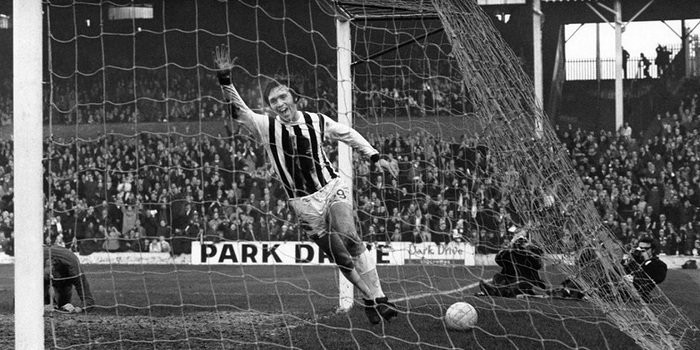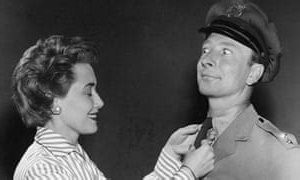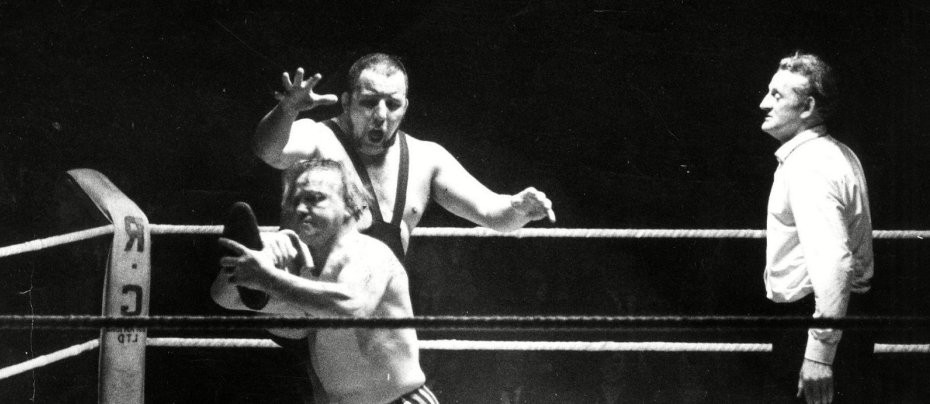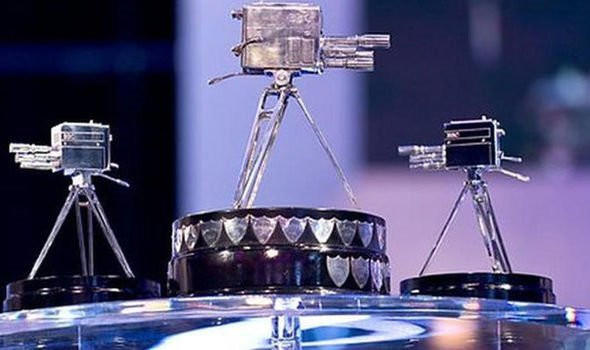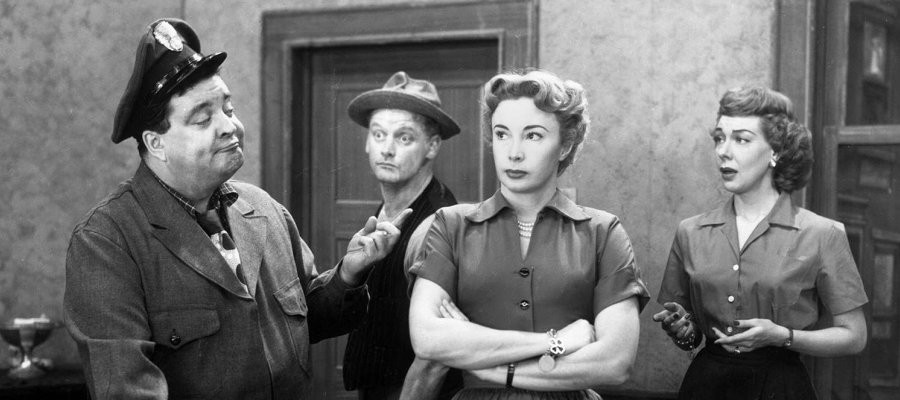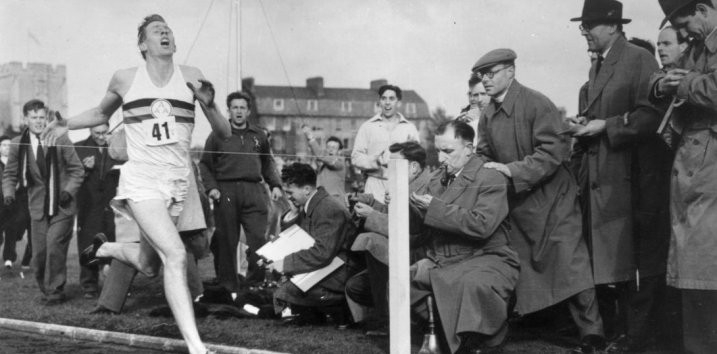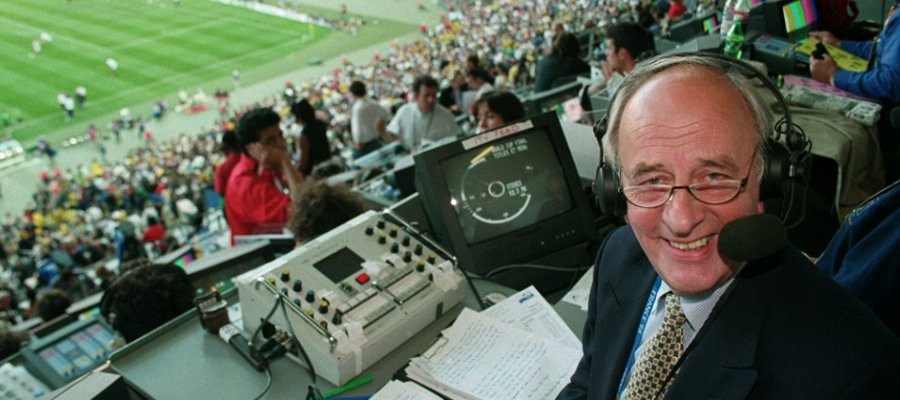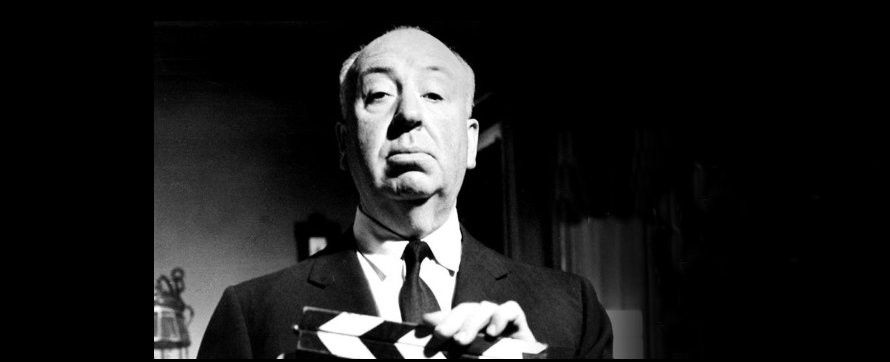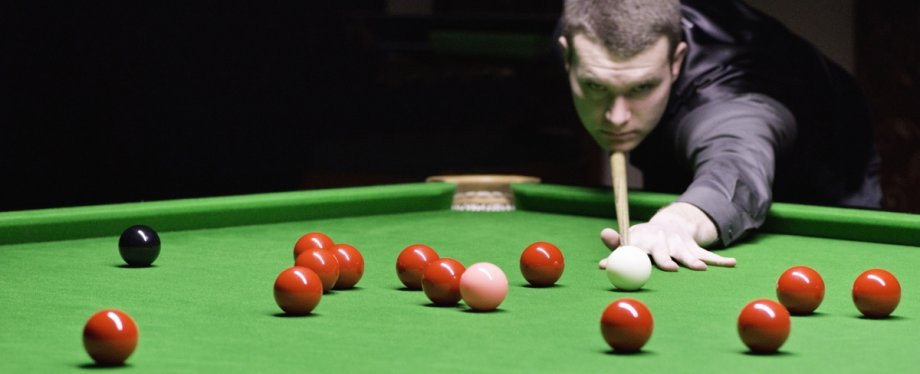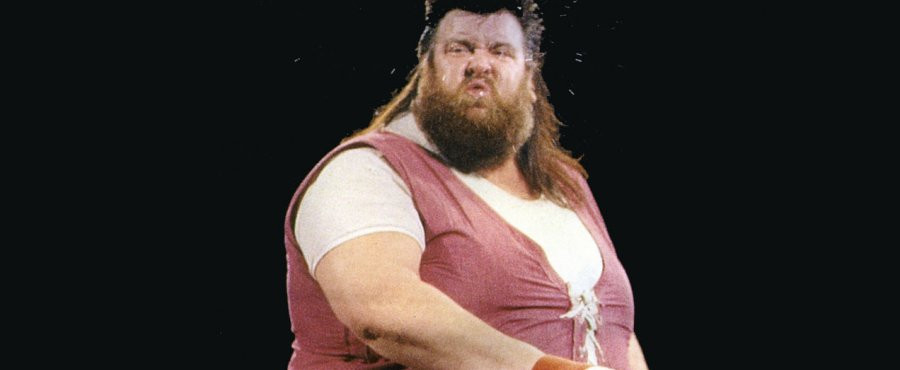
Wrestling
1955 - United Kingdom"Greeting Grapple Fans"
I was flicking through the Skyplanner recently when I read a blurb about Julia Bradbury taking on Haystacks. As I am always up for a bit of wrestling related action, I tuned in expecting to see her having a go with Giant Haystacks. I was thoroughly disappointed when I found myself a witness to Ms Bradbury yomping up some boring old hill in the Lake District. Never mind, in spite of this setback it started me thinking about the great days of wrestling on World of Sport.
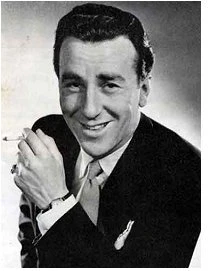
Sitting comfortably between the end of the ITV Seven and start of the final results on a Saturday afternoon, the wresting was hosted by Kent Walton, not that the viewer ever saw his face. 'Greetings grapple fans', the voice would say, 'Welcome to an action packed programme from Dudley Civic Hall'. And he meant it, too. I have always thought 'grapple fans' was a great descriptive phrase. If I were musical, and sociable, I would form a musical group and I would call it Kent Walton and The Grapple Fans. I'd be Kent Walton and the other members of the band would be named after various wrestlers. We'd be fairly successful for a while, building up a moderate fan base in the Tyne Tees region. Then we'd unravel amid musical differences and I'd go off and spend a week in the Priory to pull myself together only to find, on my return, that I'd been usurped as leader of the band by the drummer, Kendo Nagasaki. If that's how my fantasies turn out it's a good job I lead a boring life.
Like dads do, my dad would roll his eyes and tell me that wrestling was all fake. I would roll my eyes right back at him because even at the age of ten I had worked out not only that it wasn't real but also that it didn't matter that it wasn't real. My dad also used to complain that Leonard Sachs, the master of ceremonies from The Good Old Days, liked the sound of his own voice. The astute reader will not be surprised to learn that, in the Bafta's of 1976, my dad scooped the coveted award for the viewer who had missed the point the most often in the previous twelve months.
Commentator Kent Walton spoke with an unmistakeable transatlantic twang. At least, I thought it was unmistakeable and I always assumed that he had been born in the US of A. Inspector Google's enquiries reveal that he was born in Cairo in Egypt, the son of a colonial official, and grew up in Haslemere, Surrey. That's Google's story. My version of events is that Kent spent his formative years travelling Route 66, taking a detour down Milwaukee way to be a father figure to the Fonz before handing over to Mr C, stopping off at Boston for a swift half in the Cheers bar and thence on to old California to help Hannibal Hayes and Kid Curry prove their innocence. That's the great thing about television. Those who live within its walls aren't pierced by time's arrow or troubled by inconveniences like road maps.
Before becoming a wrestling commentator Kent was a disc jockey which would explain his appearances in those Swinging UK programmes that turn up from time to time on Sky Arts. If you disregard his stilted conversations with Alan 'Fluff' Freeman and Brian Matthew, he was just as skilled at introducing music in the modern manner by The Applejacks, Millie and the Migil Five as he was narrating the goings on in the square ring.
And what a televisual treat they were. Not that anyone ever does mention names like Cry Baby Jim Breaks, Marc Rollerball Rocco or Mike No Nickname Marino to me, but if they did I would be transported back to a 1970s terrace house, on a Saturday afternoon at four of the clock. My eyes would be fixed on the telly as two, sometimes four, men wrestled it out to see who would be the first to two falls, two submissions or a knock out. A not unimportant aspect of the wrestling was that the manoeuvres could be copied during break time at school on the following Monday. I still have bitter memories of the lunch time I fell victim to a particularly well-executed Boston crab. I wouldn't have minded so much but it was during a grudge catchweight contest between me and one of the teachers. A big woman she was, I had no chance.
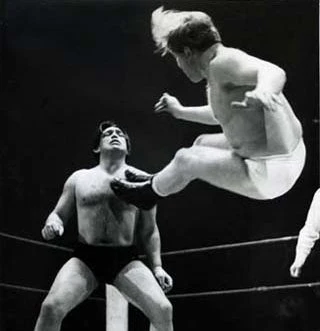
My favourite wrestlers were undoubtedly Bert Royal and Vic Faulkner. They were billed as brothers and they probably were but I could never understand why they had different surnames and looked so unalike. Balding Bert had a wiry frame, looked about fifty and would have been a superstar if wresting had been on the radio. Bouncing Vic was stockier, with a shock of blond hair, and looked a good twenty years younger. It's a shame that Everton fans had already copyrighted the nickname Golden Vision because it would have fitted Vic Faulkner as snugly as his trunks which, incidentally, ended just below his armpits. Bert and Vic sometimes operated singly but I preferred it when they teamed up as a tag pairing. 'Once again grapple fans, it's tag team time', Kent would say in that mellifluous voice that still registers in my mind's ear. Bert and Vic were unmistakeably on the side of good and since watching them I refuse to believe that anyone wearing belly warmers is capable of doing any wrong.
Giant Haystacks, real name Luke McMasters, Martin Ruane or whatever you choose to believe, was an interesting character. Dressed as some sort of hillbilly in furs, he was a mountain of a man. His size restricted him from doing much other than splashing his opponent's body all over the canvas but, unlike the ludicrous Big Daddy, he remained a baddie and was proud of it. He used to wind up poor Kent to such an extent that Kent would interrupt his commentary to engage in conversation with him. The conversations were always entertaining, and far from vegetarian. 'It's no use beefing to me, Haystacks,' Walton would say, ‘What’s the matter with you anyway, are you chicken? If you don’t stop grousing I’ll get in the ring myself and make minced meat of you, you big ham.’ It is my sad duty to inform you that that particular conversation passed away shortly afterwards of scurvy. If only Kent had threatened to make a cabbage of Haystacks instead of minced meat it might have had a chance.
Another memorable baddie was Mighty John Quinn. In reality a Canadian, Quinn portrayed himself as a typical loud-mouthed Yank intent on instigating some transatlantic ill-feeling by winding up the British wrestlers. He would march to the ring to the tune of The Mighty Quinn (wrestlers are nothing if not unimaginative) and I remember him, during a championship bout, doing severe damage to Chatham's own world heavyweight champion Wayne Bridges. On FA Cup Final Saturday as well. Quinn got his comeuppance at the hands of Big Daddy who body splashed him all the way back to North America.
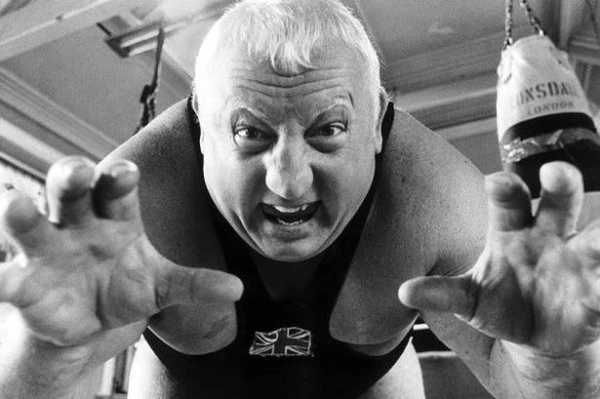
Big Daddy was one third of a triumvirate of balding Crabtree brothers who seemed to have British wrestling in their back pocket. Brian Crabtree would don a sparkly blue and red jacket to act as MC and, whenever Max Ward Of Birmingham fancied an evening off, he would double up as a referee. Max Crabtree preferred to stay behind the scenes as a booker and promoter. Shirley Crabtree, for that was Big Daddy's real name, would take care of business inside the ring. Why a father would want to call his son Shirley is beyond me, unless he was an advocate of the Boy Named Sue school of parenting.
Yes, it's fair to say that the Crabtrees had the 1980s British wresting scene all sewn up, in much the same way that the equally bald Mitchell brothers once had the residents of Albert Square under their thumb. A winner takes all contest between the Battling Crabtrees and the Mincing Mitchells would have made compulsive viewing though I can't help thinking that fearsome Peggy Mitchell would have applied the coup de grâce (I knew my French degree would come in useful sooner or later) by calling in a few old favours from some of her lovable East End cronies.
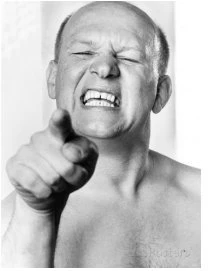
There are some wrestlers that connect the square ring with other parts of TV land. Wrestler, actor, writer Brian Glover or, to give him his nom de ring, Leon Arris the Frenchman from Paris, was an infrequent highlight of the four o'clock slot. I remember watching in delight as Mr Sugden from Kes, Flint from that episode of Whatever Happened to the Likely Lads and Heslop from Porridge all rolled into one and brightened up my Saturday afternoon viewing. The advent of Mighty John Quinn turned Pat Roach from a wrestling villain to a wrestling good guy and we probably have Quinn to thank for Roach's incarnation as the gentle Bomber in Auf Weidersehen Pet.
I don't remember Jackie Pallo on World of Sport at all, which is strange considering he dubbed himself Mr TV. I think I must have been born a little too late to witness Pallo's prowess in the ring. The only time I have seen him was when he appeared in the moody revenge thriller The Reckoning starring the great Nicol Williamson. Tyne Tees showed this film one Sunday night and, to my knowledge, it has never been shown since and this is a shame because it was a really good film, from what I can remember of it.
Catweazle benefited from not taking himself too seriously. A scrawny figure with wild fair hair and an unkempt beard, he would carefully fold up his dressing gown and then toss it on the floor. Catweazle the TV show concerned a wizard from the middle ages who is transported into the future and spends the rest of the series trying to get back, ably assisted by two young lads, one of whom is played by Gary Warren. He was great in this and The Railway Children and it’s a shame that he didn’t continue acting.
I could never decide whether Catweazle the wrestler was named after Catweazle the TV show or vice versa. I must have made a habit of such confusion in my younger days because the following is a true story. When I was about 12, World of Sport showed an exhibition pool match between Willie Mosconi and Minnesota Fats. There was friction between the two because of their different personalities and styles of play (think Steve Davis versus Alex Higgins in about 1983 and you'll get the picture) and also because Fats claimed that the character of Minnesota Fats in The Hustler was based on him. Mosconi disputed this but I always used to wonder how he could. I assumed for years that the fictional Minnesota Fats was named after the real life pool player. The truth hit me approximately twenty years later while I was out driving. 'The fictional character wasn't named after the real life pool player, after all. The crafty swine named himself after the fictional character', I shouted, out of the blue, while navigating my way down Linthorpe Road and to the consternation of my passenger. I like to learn lessons from events in my life so that I don't make the same mistake again but, for all my efforts, the only lesson I can take from this is that sometimes I am very stupid indeed. I failed the driving test, by the way. Something to do with lack of concentration and shouting out irrelevant rubbish relating to World of Sport, according to the examiner. Failure notwithstanding, I was more than happy with this assessment and I congratulated him on his perception.
Writing this from a more enlightened time, I don't like to think about the abuse that black wrestlers would have received. Obviously possessed of a mental as well as a physical strength, black wrestlers had most of the best moves and all of the best names. The likes of Les Kellett, Steve Logan and Marty Jones, while all undoubtedly talented, couldn't hope to compete name wise with Honey Boy Zimba, Clive 'Iron Fist' Myers, Johnny Kwango, Masambula and, direct from an episode of Love Thy Neighbour, Kid Chocolate (and I would love to have seen Eddie Booth try one of his jokes on Masambula. I should think his reaction would have been far from neighbourly, possibly culminating in his signature move of a celebratory headstand on one of the corner posts).
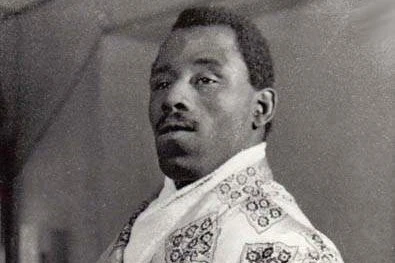
Assuming Inspector Google is not trying to fit me up, Johnny Kwango used to be a ballet dancer with the first all-black dance troupe in Europe and his brother, Cyril, was a member of the comedy combo Sid Millward and the Nitwits. This group is remembered fondly by Tommy Cooper, the character played by the great Ronnie Stevens in the Vicars and Tarts episode of Ever Decreasing Circles. I had always assumed that this was a fictitious name and, were it not for wrestling, I would have gone to my grave assuming it. That's one of the many reasons why I love television. It's a broad church indeed that allows Sid Millward and the Nitwits, Kes, The Reckoning, the Likely Lads and Porridge to nestle unobtrusively with Leon Arris, Pat Roach and Johnny Kwango's kith and kin. Wrestling had almost everything but what it didn’t have was an appearance from Spooner, the villainous wrestler-cum-tenant from Rising Damp. This would have made my viewing complete but, alas, it wasn’t to be. I like to think Spooner was tetchy towards Rigsby and his fellow residents only because he had just experienced, or was about to experience, a night of televised torture at the hands Tally Ho Kaye in a small town somewhere in the north of England.
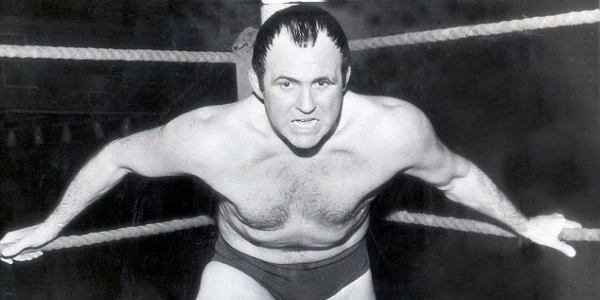
As the 1980s advanced, wrestling appeared less and less on ITV screens and I was surprised by this because I expected it to go on and on. I made the same mistake with El Dorado a few years later so what do I know? It was decided that viewers were becoming more sophisticated and were no longer interested in watching grown men grapple each other until one of them called quits. I don't know who was responsible for this momentous decision but Greg Dyke's name has cropped up more than once in my investigations so he must remain a person of interest.
Kent Walton's cheery and confident valediction of 'Have a good week till next week' became the hesitant and doubtful 'Have a good time till next time' as he wasn't sure if the wrestling would still be on next week. Everything has its day but I think it was a sad one when ITV decided to deliver a combined two falls, two submissions and a knockout to British wrestling. Now all we have is the glitzy American version, neatly packaged and broadcast from Anywheresville, Idaho which is thousands of miles from Dudley Civic Hall, in lots of ways.
Seen this show? How do you rate it?
Seen this show? How do you rate it?
Published on February 13th, 2019. Written by Andrew Cobby (October 2016) for Television Heaven.


